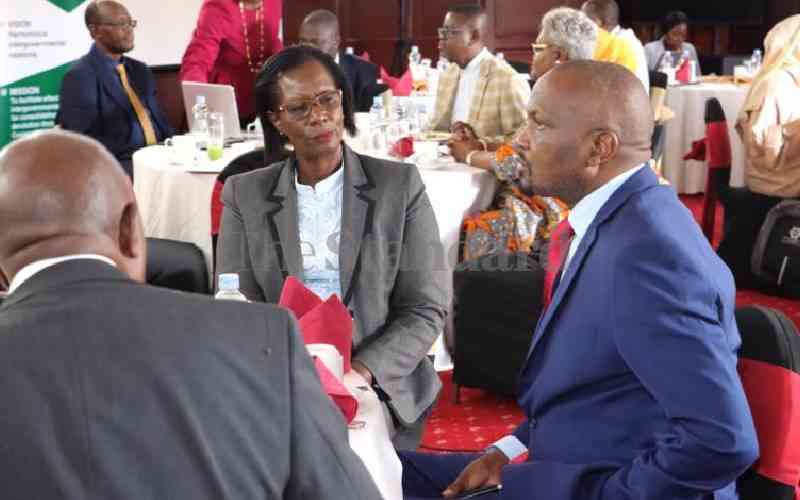Before Christmas last year, Muslims travelling on a bus to Mandera spontaneously shielded Christians from what could have turned into a bloody massacre by extremists.
How majority of Kenyans and people around the world responded to this selfless act demonstrated that communities can overcome violence and hatred.
In recent times, the world has witnessed the rise of violent ideas that seeks to drive a wedge between people who have previously lived together.
I have seen how Kenya is making good community-based inroads to excluding this ideology of hate. Violent extremism is a subject that has caught the headlines so many times over the years but can still be misunderstood.
It is often thought that youth succumb to ‘brainwashing’ and that only those in a weak, vulnerable state are recruited into terror. Rather, what I have seen during my last two years of research at the Coast, Nairobi and the North East is that often people become motivated to join up and hold radical beliefs as part of a network of close personal connections.
Amid the maelstrom of fear and violence generated by terrorism, it is critical to remember this is perpetrated by a very small number of people. The best approach learned from elsewhere is to correctly diagnose and then take carefully targeted measures to contain, rather than increase the pool of extremists.
So why does radicalisation happen? My research has found that friendships and other relationships can distort the natural quest by youth for purpose and fulfilment.
Radical and violent ideas can spread and take advantage of someone’s hopes and frustrations, their social position and background. All around the world youth are too easily attracted to the idea of a brotherhood of rebellion.
This becomes particularly true if the group they belong to feels deeply humiliated, and they feel like their most strongly held, personal beliefs are under attack.
As President Uhuru Kenyatta said while closing the Nairobi conference on countering violent extremism earlier last year, strengthening bonds within and between communities is the most important joint response to those fuelling division and hate.
Resilient communities can simultaneously harness the vigour of youth, alleviate pressures of modern life, and provide foundations of a secure Kenya. Good relations, peaceful dialogue and mutual respect between communities should calm rising anger and tension.
Bringing government and civil society together to build bonds in society, often at the local level within city slums and villages is vital. Networks, ideas and institutions that generate a positive vision of the future are the foundations of security.
Schools and sports teams, family and friends, mosques and churches; all are essential threads that hold the fabric of Kenyan society together.
In Kenya, and around the world, studies have shown that violent extremism does not just affect the poor. Individuals from any group in society can be lured into a destructive and hateful ideology.
The study on drivers of radicalisation in Kenya I jointly conducted last year came to two important conclusions. I found that listening to what people were most concerned about in their daily lives – which can turn into drivers of radicalisation – is key.
Also important, was an accurate assessment of identifying specific individuals most at risk. Coming to an open-minded and unbiased diagnosis of the problem is critical to applying the right response.
When we really listen to challenges facing the youth, there are several solutions that can have real impact, all based around community. Reinforcing peer-to-peer mentorship that fosters a sense of camaraderie and purpose among the youth is one.
Positive support networks, leaders and role models support and inspire youth as they seek job opportunities and outlets for their ambition. Extremists often hijack religions and religious ideas to build fear, conflict and violence. As the Pope said in the lead-up to his recent Kenya visit, “We are living at a time when religious believers and person of goodwill everywhere are called to foster mutual understanding and respect and to support each other as members of our one human family.” So, helping strengthen relations between and within faith groups is central to tackling violent extremism. Religious leaders have a key role in accompanying the youth on their personal journey through life as they make choices and face challenges. And so, supporting Kenya’s religious leaders and preachers to increase connection with their congregation and identify new ways of building their communities is critical.
The state and law enforcement agencies in particular, have a crucial role in containing radicalisation as they interact with communities. In my work with government and other partners I have seen how progress in this area is being made. An approach by police, intelligence and other agencies that protect and secure communities, on the basis of mutual trust and equality, is an important ingredient in countering radicalisation, and building a secure Kenya.
There is a real struggle between those intent on violence, and the forces of goodwill and hope. The re-opening of Garissa University shows how communities can be rebuilt and repaired. As President Kenyatta said, it is the African habit of mutual assistance and communal harmony that is the very quality that will reclaim today’s lost and radicalised youth.
 The Standard Group Plc is a multi-media organization with investments in media
platforms spanning newspaper print operations, television, radio broadcasting,
digital and online services. The Standard Group is recognized as a leading
multi-media house in Kenya with a key influence in matters of national and
international interest.
The Standard Group Plc is a multi-media organization with investments in media
platforms spanning newspaper print operations, television, radio broadcasting,
digital and online services. The Standard Group is recognized as a leading
multi-media house in Kenya with a key influence in matters of national and
international interest.
 The Standard Group Plc is a multi-media organization with investments in media
platforms spanning newspaper print operations, television, radio broadcasting,
digital and online services. The Standard Group is recognized as a leading
multi-media house in Kenya with a key influence in matters of national and
international interest.
The Standard Group Plc is a multi-media organization with investments in media
platforms spanning newspaper print operations, television, radio broadcasting,
digital and online services. The Standard Group is recognized as a leading
multi-media house in Kenya with a key influence in matters of national and
international interest.









